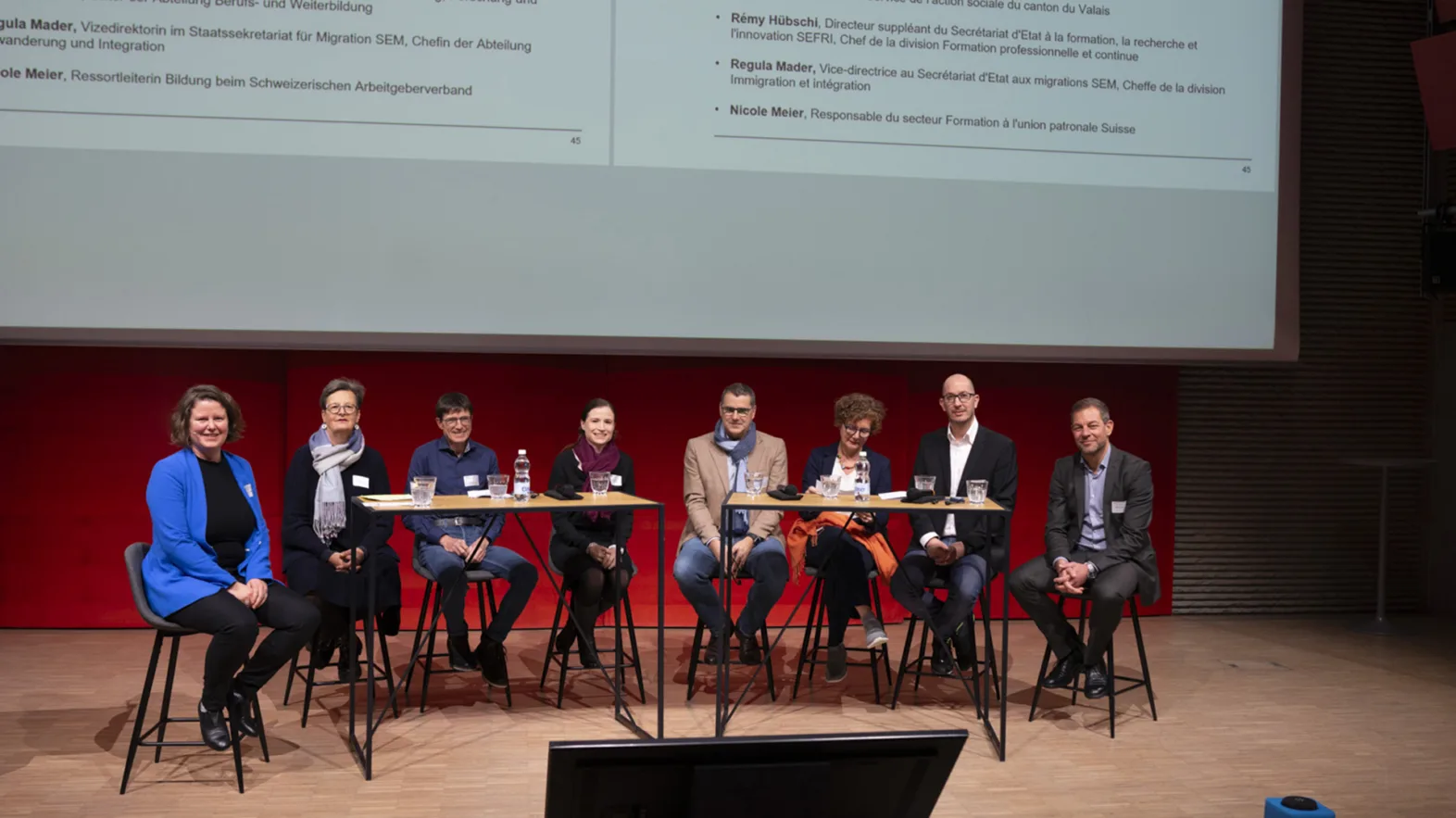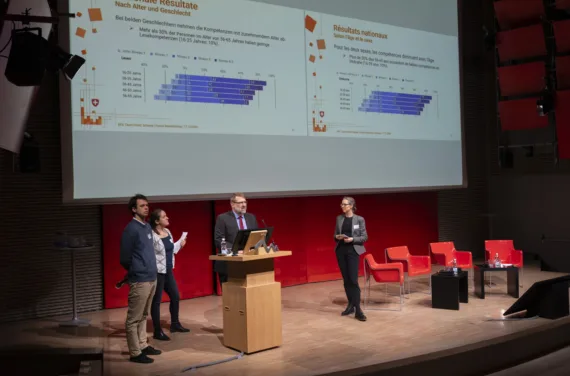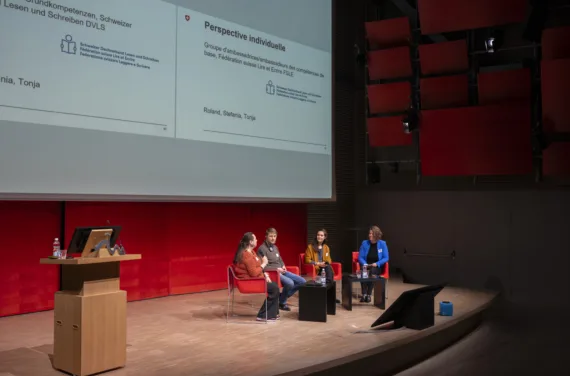Basic skills of adults in Switzerland rated above average
Adults in Switzerland have above-average literacy, numeracy and problem-solving skills compared to other countries. This was one of the findings from the OECD's Programme for the International Assessment of Adult Competencies (PIAAC), which were presented on 10 December 2024. Sabine Scheiben, head of the SERI's Continuing Education Unit, explains the federal government's efforts to encourage the adult acquisition of basic skills.

Sabine Scheiben, what do the results of the OECD study tell us?
This was the first time that Switzerland took part in this study. And so, we are pleased to now have a better understanding of the situation in our country. The good news is that Switzerland's skills scores are significantly higher than the OECD average in all areas. Nevertheless, nearly 1.7 million people in Switzerland possess low skills in at least one of the three areas – literacy, numeracy and problem-solving.
Abstracting from the results of this study, could you please explain how SERI encourages the acquisition and retention of basic skills?
Basic skills are a prerequisite for lifelong learning and enable active participation and integration in social and working life. The federal government therefore works with the cantons to ensure that adults can refresh existing basic skills and acquire any that are lacking.
Support is based on different applicable legislation. For example, the Continuing Education and Training Act (CETA) empowers the cantons to offer programmes intended to help adults to acquire basic skills. The Confederation has earmarked around CHF 58 million for this purpose for the 2025–2028 ERI funding period. Language courses can also be provided as labour-market measures under the Unemployment Insurance Act (UIA) or as part of cantonal integration programmes for migrants.
What impact will the results of the OECD study have on funding over the next few years?
The results will help us to refine our broad-based support instruments. The federal government and the cantons can now make specific improvements to their support strategies and tailor their measures more effectively to the needs of target groups. We also work closely with intercantonal and national committees to improve the effectiveness of programmes. The aim is to enable adults in Switzerland to obtain the skills they need for their jobs and everyday lives.



On 17 December, the ‘Forum Weiterbildung’ (Continuing Education Forum) addressed the topic of ‘How do adults in Switzerland stand in terms of basic skills?’ Why hold such an event right after the results of the OECD study were made public?
We knew that the 160 or so participants were already aware of the results. However, we felt that it was important for all stakeholders to take these results on board and implement them in their daily work. This event gave us the opportunity to initiate discussions and explore the issues, which is one of the clear objectives of the ‘Forum Weiterbildung’.
And how was this achieved?
To start out, the FSO gave a presentation of its detailed findings. At the same time, we felt that it was very important to include individual perspectives. Two people from the umbrella organisation for reading and writing shared their personal experiences and challenges in relation to basic skills. They gave moving accounts of how acquiring basic skills can boost self-esteem and self-sufficiency.
Representatives from the federal government, cantons and social partners took part in a panel discussion, which highlighted the urgency of the issue and the need for action. Basic skills have an impact on many different policy areas – not only education, but also employability, social security and integration, just to name a few. As a result, we need to work with a wide range of stakeholders.
Helping adults to acquire basic skills
SERI encourages the adult acquisition and retention of basic skills by virtue of the Continuing Education and Training Act (CETA). It supports programmes and enters into service agreements with the cantons and providers of continuing education. SERI also supports the ‘Simply better!... at work’ programme, which falls under the scope of the Vocational and Professional Education and Training Act (VPETA).
Contact
Author



